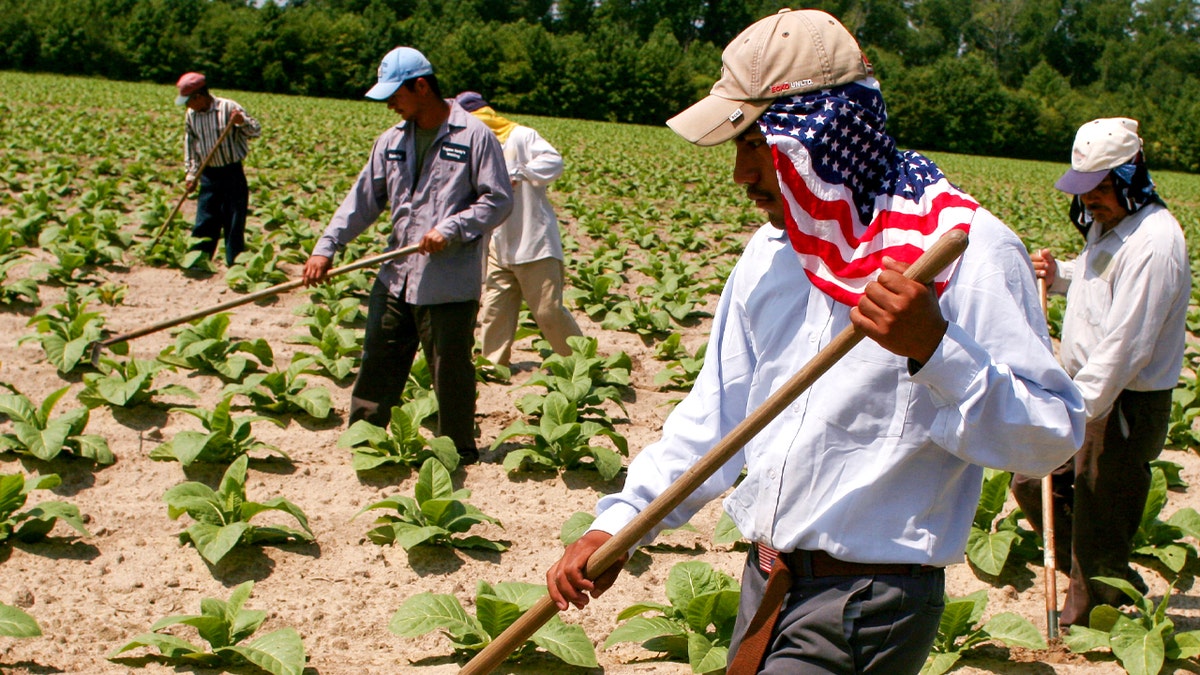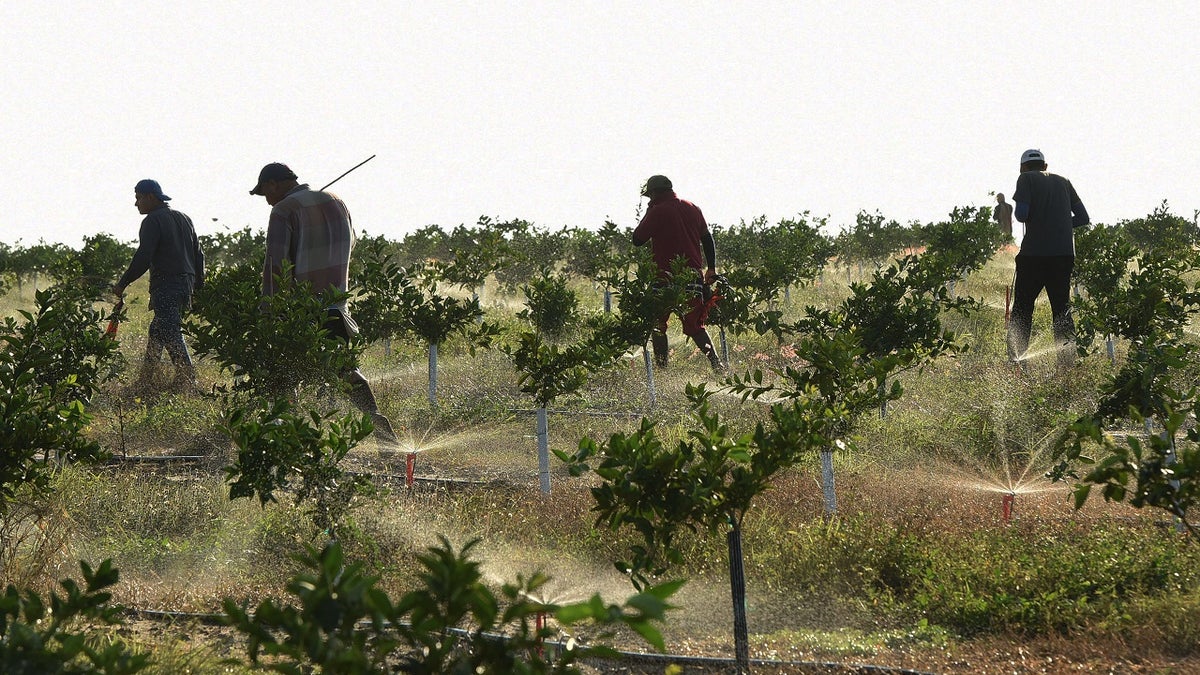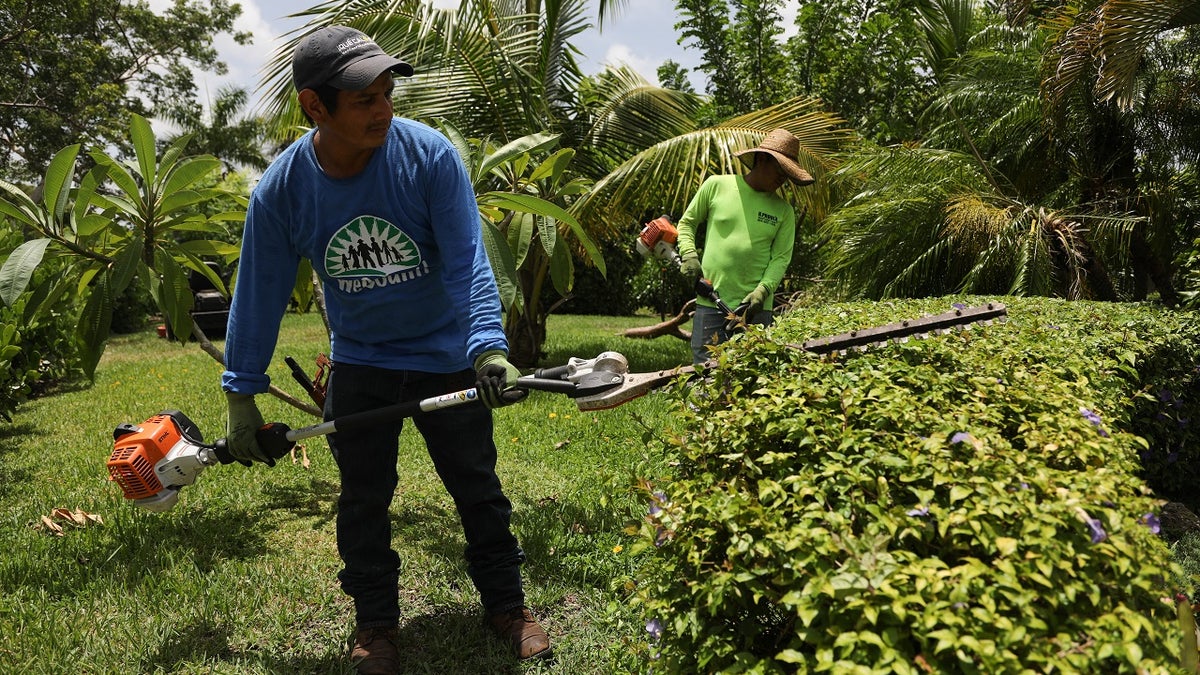Fox News Flash top headlines for February 18
Fox News Flash top headlines are here. Check out what's clicking on Foxnews.com.
FIRST ON FOX: The Biden administration is considering a rule that would open the door to allow temporary agricultural and seasonal workers to be able to apply for permanent residency in the United States, Fox News Digital has learned.
The Department of Homeland Security (DHS) previously announced it intends to issue a notice of proposed rulemaking to "modernize and reform" the H-2A and H-2B visas — which are used for temporary agricultural workers and temporary seasonal workers.
U.S. Citizenship and Immigration Services (USCIS) has said that rule will incorporate policies to address exploitation and abuse, protect workers and increase program efficiencies.
Fox has now learned that the rule process, which is still going through the consideration process at USCIS, would allow workers on those visas to take steps to become permanent residents and obtain a green card.
BIDEN ADMIN GRANTS 64,000+ EXTRA H-2B SEASONAL VISAS, 20,000 TO HAITI AND CENTRAL AMERICA
When workers come to the U.S. on temporary (or "nonimmigrant") visas, they are expected to come with the intent of returning to their home countries after their visa ends. However, some visas also allow foreign nationals to pursue a green card at the same time, in what is known as a "dual intent."

Mexican farm workers who are allowed into America on a special seasonal harvest visa known as an H2A, weed a tobacco field in Greene County, North Carolina. ( Andrew Lichtenstein/Corbis via Getty Images)
The H-2A and H-2B visas explicitly do not allow for dual intent, stating that workers must return home after completing their period of work. But that would change as part of this rule, should it move forward.
"The [rule-making process] also proposes to provide increased flexibility for H-2 workers by extending grace periods, and allowing H-2 workers to take steps toward becoming permanent residents of the United States without being deemed to have abandoned their nonimmigrant intent or their foreign residence solely on that basis," says a summary of the proposal, seen by Fox Digital.
The rule change would be in line with the Biden administration’s pledge to open up more legal immigration pathways to those seeking to come to the U.S., both via the southern border and elsewhere.
The rule would also strengthen prohibitions on immigration fees being collected from H-2 workers by their employees via salary reductions, and would introduce factors by which a petition could be denied based on disciplinary actions taken against an employer by a government agency such as USCIS or the Department of Labor. The regulation is also envisioned as allowing workers to begin work immediately upon USCIS receiving their petition, rather than only when the visa itself is approved.

Migrant farm workers check irrigation lines in an orange grove managed by a fifth generation citrus grower on December 14, 2022, in Fort Meade, Florida. (Photo by Paul Hennessy/Anadolu Agency via Getty Images)
In response to a request for comment from Fox News Digital, a USCIS spokesperson said the agency is "committed to promoting policies and procedures that break down barriers in the immigration system, increase access to eligible immigration benefits, enhance protections for temporary nonimmigrant workers, and better ensure the integrity of the H-2A and H-2B programs, and the agency will continue to uphold America’s promise as a nation of welcome and possibility with fairness, integrity, and respect for all we serve."
Attempts at reforming H-2 visas are not unique to the Biden administration. The Trump administration announced an ultimately incomplete rule-making process to add more flexibility and stop the abuse of the H-2A system, while strengthening protections of American workers.
The H-2B visa, intended for workers in seasonal occupations such as landscaping and hotel and restaurant work, has proved controversial with both Republicans and Democrats expressing concerns about the abuse of vulnerable foreign workers and fears that it incentivizes employers to use cheap labor rather than employ American workers. Congress has limited the number of H-2B visas to 66,000 a year, but allows DHS to exceed the cap — which it typically does.

Homestead, Florida landscaper Carlos Morales, a member of WeCount!, a labor union of low wage immigrant workers and their families, wears his teeshirt to work. (Photo by Cindy Karp/For The Washington Post via Getty Images)
However, the inclusion of a way to allow H-2 workers to eventually gain permanent residency in the U.S. is likely to be controversial among immigration hawks, who fear the programs are used to import cheap labor which competes with U.S. workers. The Federation for American Immigration Reform (FAIR) says that the move would further reliance on foreign labor and hurt American workers, as it says it has done for other visas — such as the H-1B for specialty occupations, which is used primarily by the tech industry.
"The clear desire of foreign nationals to get an H-1B visa — primarily because it can lead to permanent residence — has encouraged unscrupulous outsourcing practices while reinforcing employers’ dependency on cheap foreign labor," FAIR President Dan Stein said in a statement to Fox. "By morphing two additional guest worker programs into de facto permanent immigration streams, the Biden administration is doing so at the detriment of American workers, even during a time of economic uncertainty."
CLICK HERE TO GET THE FOX NEWS APP
Stein said the administration "must reconsider this proposed rule and instead help American workers who are struggling to compete with cheap foreign labor."
The administration, meanwhile, is facing a lawsuit from Republican states over its measures announced last month that would allow 30,000 migrants from Venezuela, Haiti, Cuba and Nicaragua into the U.S. each month. Those states filed a request for a preliminary injunction this week.















































